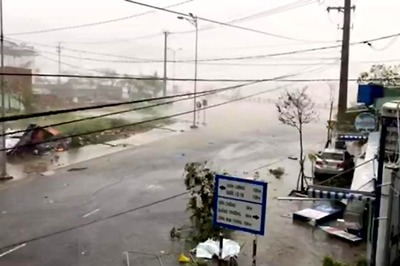
views
Afghanistan: Taliban militants released 12 captives in a series of handovers on Wednesday, part of a deal with Seoul to free all 19 South Korean hostages that one Afghan minister warned would embolden the insurgents.
The South Koreans, Christian aid workers who were kidnapped nearly six weeks ago, were turned over to the International Committee of the Red Cross at three locations in central Afghanistan. None of the 12 spoke to reporters.
The remaining South Koreans will be freed over the next 48 hours, Taliban commanders have said.
The first three women freed came to Qala-E-Kazi in a single car, their heads covered with red and green shawls. Red Cross officials quickly took them to their vehicles and set out for the office of the Afghan Red Crescent in the town of Ghazni, witnesses said.
Under the deal reached Tuesday, South Korea reaffirmed a pledge it made before the hostage crisis began to withdraw its troops from Afghanistan by year's end. Seoul also said it would prevent South Korean Christian missionaries from working in the staunchly Muslim country.
The Taliban apparently backed down on demands for a prisoner exchange. But the militant group, which killed two South Korean hostages last month, could emerge with enhanced political legitimacy for negotiating successfully with a foreign government.
''One has to say that this release under these conditions will make our difficulties in Afghanistan even bigger,'' Commerce Minister Amin Farhang told Germany's Bayerischer Rundfunk radio. ''We fear that this decision could become a precedent. The Taliban will continue trying to take hostages to attain their aims.''
A German engineer and four Afghan colleagues kidnapped July 18, the day before the South Koreans, are still being held.
South Korea's government, which has been under intense domestic pressure to bring the hostages home, said it tried to adhere to international principles while putting a priority on saving the captives.
''I don't think we made a big deviation from the international community's principle and practice,'' said South Korean presidential spokesman Cheon Ho-sun. ''Other countries, when faced with this kind of problem, resolve the problem through contacts with kidnappers. I think there is no exception to this,'' he said.
The deal was made in face-to-face talks between Taliban negotiators and South Korean diplomats in Ghazni. The Afghan government was not party to the negotiations, which were facilitated by the Red Cross.
The Seoul government and relatives of the hostages have stressed the kidnapped South Koreans were not missionaries, but were doing aid work such as helping in hospitals.
The Taliban has not said why the hostages were not released all at once. One factor behind the staggered release is believed to be logistics - the captives may have been held in different places far from each other in the mountainous area.




















Comments
0 comment